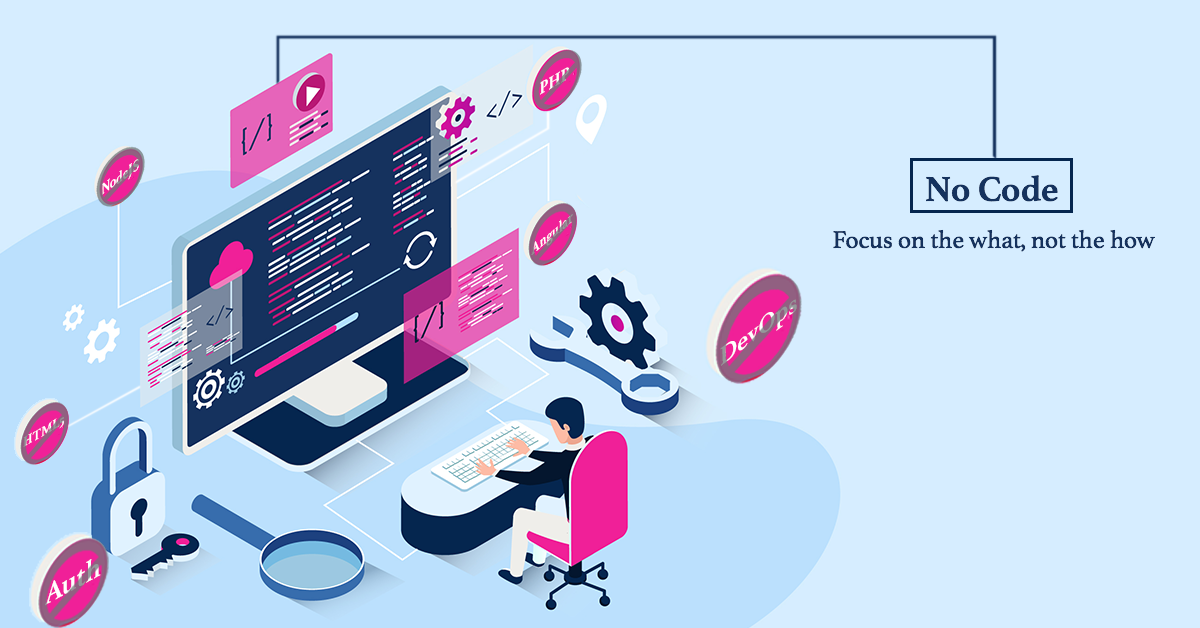Maximizing Efficiency with Low-Code Development Platforms
 Joydeep Pradhan
Joydeep Pradhan
In the ever-evolving landscape of software development, one trend shines as a game-changer: the emergence of low-code development platforms. These platforms are changing how applications are created, making development accessible to more people and speeding up innovation in various sectors. Let's dive into the transformative impact of low-code and see how it's shaping the future of software development.
Bridging the Talent Gap
One of the most significant challenges facing the tech industry today is the shortage of skilled software developers. With the demand for digital solutions skyrocketing, traditional development approaches struggle to keep pace. Low-code platforms offer a solution by empowering a broader range of users, from citizen developers to business analysts, to create applications without extensive coding knowledge. By bridging the talent gap, low-code platforms enable organizations to leverage the collective expertise within their teams and drive innovation from the ground up.
Speeding Up Time-to-Market
In today's fast-paced business environment, speed is everything. Low-code development accelerates the application lifecycle, allowing developers to prototype, iterate, and deploy solutions at lightning speed. With visual interfaces, drag-and-drop components, and pre-built templates, developers can rapidly assemble applications without getting bogged down in manual coding. This agility is invaluable in industries where time-to-market can make the difference between success and failure.
Empowering Business Users
Traditionally, software development has been the domain of IT departments and specialized developers. However, low-code platforms are democratizing the development process, putting the power of creation into the hands of business users. With intuitive tools and visual workflows, employees with domain expertise can take an active role in building applications that meet their specific needs. This empowerment fosters a culture of innovation and collaboration, driving continuous improvement across the organization.
Flexibility and Customization
Despite their visual nature, low-code platforms offer extensive customization options. Developers can still incorporate custom code when necessary, enabling the creation of highly tailored solutions. Whether integrating with legacy systems, using external APIs, or implementing complex business logic, low-code platforms offer the flexibility to meet various needs. This blend of simplicity and customization defines the low-code revolution, allowing developers to express their creativity freely.
Future-proofing Your Development Strategy
As technology evolves rapidly, organizations need to future-proof their development strategies. Low-code platforms offer a scalable and flexible solution to adapt to changing business needs and new technologies. With integrated features, automatic updates, and easy scalability, low-code platforms provide a strong foundation for sustainable growth and innovation. By adopting low-code development, organizations can position themselves at the forefront of the digital revolution and pave the way for a brighter future.
In summary, the emergence of low-code development platforms signifies a significant change in how software is created, empowering organizations to innovate quickly, collaborate more efficiently, and stay ahead of trends. By harnessing the potential of low-code, businesses can unlock their creative capabilities and drive enduring transformation in an increasingly digital landscape.
Subscribe to my newsletter
Read articles from Joydeep Pradhan directly inside your inbox. Subscribe to the newsletter, and don't miss out.
Written by

Joydeep Pradhan
Joydeep Pradhan
As a computer science and engineering student, I'm driven by a passion for innovative technology. I've tackled IoT projects, completed a networking internship, and explored AI and ML. Outside the tech world, I enjoy discovering new tools, gaming, Marvel movies, and the great outdoors. My goal is to make tech accessible for all and secure a rewarding IT career.